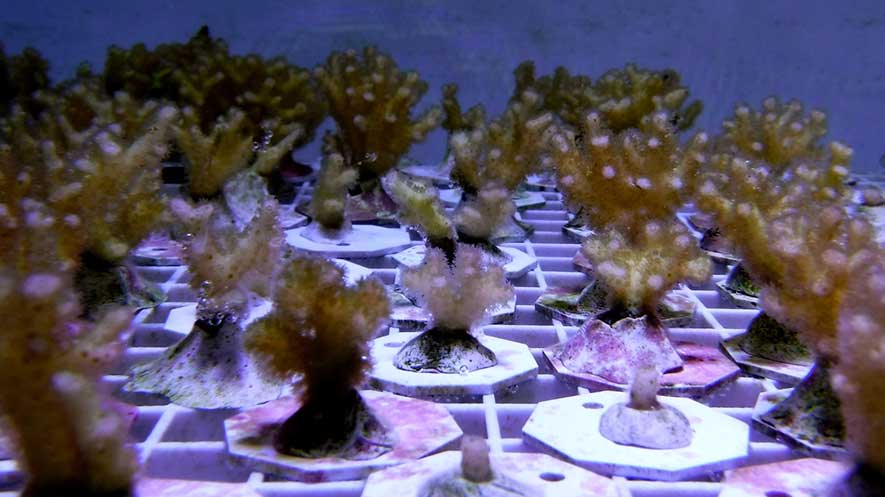A new study led by researchers at the University of Miami (UM) Rosenstiel School of Marine and Atmospheric Science found that a common coral species might have evolved unique immune strategies to cope with environmental change.
Roughly 30 percent of the cauliflower coral's (Pocillopora damicornis) genome was unique compared to several other reef-building corals. In this 30 percent, many of these genes were related to immune function. This diversity of genes related to immune function, the researchers say, may be important for the long-term survival of coral reefs as climate change and ocean acidification continue to alter the environment to which corals are adapted.
"This coral is traditionally thought of as a weed, and yet it may be one of the last corals to survive environmental changes such as climate change," said senior author of the study Nikki Traylor-Knowles, an assistant professor of marine biology and ecology at the UM Rosenstiel School.
To conduct the research, the scientists extracted and sequenced the genomic DNA from two healthy fragments and two bleached fragments of P. damicornis, which is one of the most abundant and widespread reef-building corals in the world. Their genome was then compared to publicly available genomes for several other coral species and several other cnidarian species.
"The study shows that this is an important coral with a very complex and unique immune system, which may explain why it is able to survive in so many different locations," said the paper's lead author Ross Cunning, who conducted the research as a postdoctoral scientist at the UM Rosenstiel School and is now a researcher at Shedd Aquarium.
These results suggest that the evolution of an innate immune system has been a defining feature of the success of hard corals like P. damicornis, and may help facilitate their continued success under climate change scenarios.
The immune system of corals, like humans, is vital to protect its overall health and deal with changes in its surroundings. If an animal has a stronger immune system, then it will be better equipped to deal with environmental changes. These new findings suggest that some corals have many more and diverse immunity genes than would be expected, which is the hallmark of a very robust immune system.
"This study helps us better understand how corals deal with stress," said Traylor-Knowles. "Its complex immune system indicates that it may have the tools to deal with environmental change much more easily than other corals."
The study, titled "Comparative analysis of the Pocillopora damicornis genome highlights role of immune system in coral evolution," was published in the October 31, 2018 issue of the journal Scientific Reports. The paper's coauthors include: Nikki Traylor-Knowles, Andrew Baker, and Phil Gillette of the UM Rosenstiel School; UM alumnus Ross Cunning of Shedd Aquarium; and UM alumna Rachael Bay of the University of California Davis.
Source: Diana Udel, University of Miami (UM) Rosenstiel School



